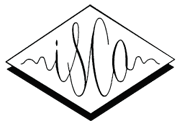Revisiting recall effects of filler particles in German and English
(3 minutes introduction)
| Beeke Muhlack (Universität des Saarlandes, Germany), Mikey Elmers (Universität des Saarlandes, Germany), Heiner Drenhaus (Universität des Saarlandes, Germany), Jürgen Trouvain (Universität des Saarlandes, Germany), Marjolein van Os (Universität des Saarlandes, Germany), Raphael Werner (Universität des Saarlandes, Germany), Margarita Ryzhova (Universität des Saarlandes, Germany), Bernd Möbius (Universität des Saarlandes, Germany) |
|---|
This paper reports on two experiments that partially replicate an experiment by Fraundorf and Watson (2011, J Mem. Lang.) on the recall effect of filler particles. Their subjects listened to three passages of a story, either with or without filler particles, which they had to retell afterwards. They analysed the subjects’ retelling in terms of whether important plot points were remembered or not. For their English data, they found that filler particles facilitate the recall of the plot points significantly compared to stories that did not include filler particles. As this seems to be a convincing experimental design, we aimed at evaluating this method as a web-based experiment which may, if found to be suitable, easily be applied to other languages. Furthermore, we investigated whether their results are found in German as well (Experiment 1), and evaluated whether filler duration has an effect on recall performance (Experiment 2). Our results could not replicate the findings of the original study: in fact, the opposite effect was found for German. In Experiment 1, participants performed better on recall in the fluent condition, while no significant results were found for English in Experiment 2.







